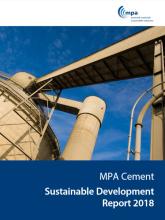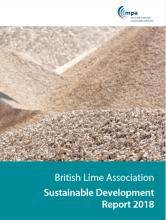The
Air quality is currently high on the government agenda and MPA Cement members have made major investments in recent years to reduce emissions to air so that levels of nitrogen oxides, particulate matter and sulphur dioxide are now 84%, 86% and 82% lower than in 1998 respectively.
Reflecting on the year Dr Richard Leese, MPA Cement Director, praised the cement manufacturers for their efforts saying: “This latest sustainable development report clearly demonstrates the great effort the cement manufacturers have taken to minimise the impact of their operations on the environment, neighbours and their own employees. In coming years, a key focus for the sector will be meeting tighter conditions from EU legislation whilst ensuring that domestic production remains internationally competitive”.
The report also shows that although domestic sales have steadily improved since 2012, the UK manufacturers continue to face high regulatory policy costs with high energy prices (a result of energy and climate change policies) and high electricity network and wholesale costs (partly because of considerable change in the energy system induced by government policy).
A specific concern highlighted in the report relates to the manufacturers’ ability to reduce their fossil fuel use. For decades UK cement manufacturers have replaced fossil fuels with waste derived alternatives, investments that require £millions.
However, the rate of fossil fuel replacement is slowing as a result of increasing competition for such fuels from other users which, unlike the cement industry, receive Government incentives.
Dr Leese added: “Cement is an essential material to meet society’s needs for homes, schools, hospitals, leisure and workplaces. The industry has ambitious goals for decarbonisation but if these ambitions are to be achieved, action must be taken to remove market distortion from the biomass fuels market to allow cement manufacturers to compete on a level playing field.”







